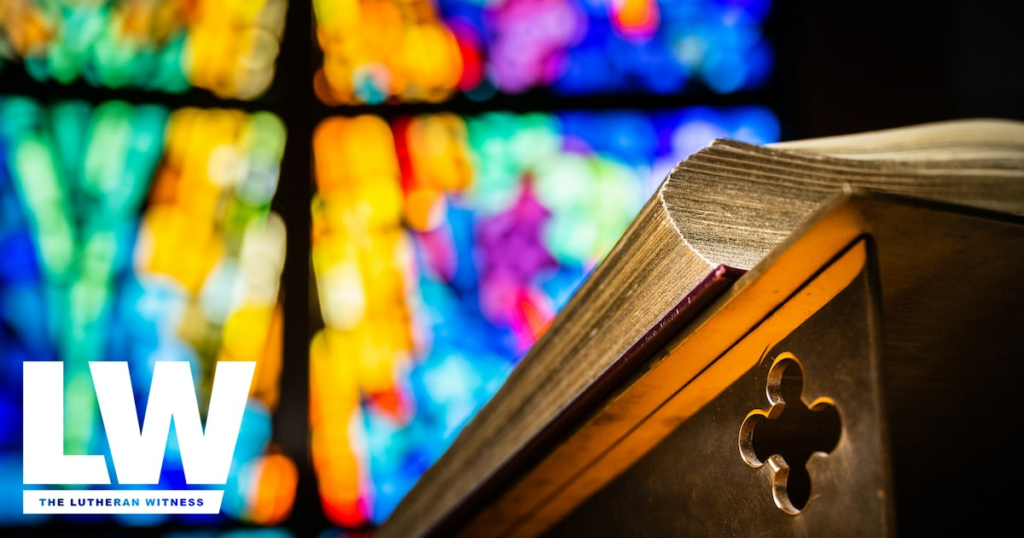by Jeni Miller
Lutherans make quite a fuss about Law and Gospel. And for good reason, since distinguishing Law and Gospel is the crux of how we read Scripture and relate to one another as Christians. Attorney Ann Stillman may be well-versed in law, but she still packs plenty of Gospel punch in her everyday work as vice president and general counsel for Concordia Plan Services (the Synods healthcare provider). Ann has worked closely with agencies of The Lutheran Church–Missouri Synod for the past 25 years, and most recently she began working for Concordia Plan Services to provide guidance in the areas of employment, corporate law, taxation and employee benefits.
In February 2012, Ann was called on to accompany President Harrison to the nations Capitol as he worked to defend religious liberty and our Law- and Gospel-focused consciences against effects of the recent Health and Human Services ruling.
The following is an edited Lutheran Witness (LW) interview with Stillman (AS).
LW: How and why did you decide to become a lawyer?
AS: I knew that I wanted to work in the non-profit sector, and becoming a lawyer seemed to be the best path towards working in that sphere. I originally wanted to be a social worker, but at that time there werent many jobs available in that field. However, an assessment test once pointed me towards law because I’m extremely conscientious and care deeply about the work that I do. I easily get emotionally involved and invested in my work, and am always thinking and dreaming about it 24 hours a day!
LW: How does your faith play a role in your job?
AS: God is always in control, and He provides me with direction in the work that I do. Like many Christians, I look for guidance through prayer and Scripture, as well as conversations with my pastor and the pastors I am in contact with at the International Center.
LW: How do you mentally and spiritually prepare for an event like Thursday, February 16th, when you accompanied President Harrison to Washington D.C. to speak before Congress?
AS: With lots of prayer! My job was to assist President Harrison in providing an accurate testimony and in understanding the details of our health plans and coverage so he could answer questions from the House committee. Ive been looking at health reform bills since before they passed, so Ive been preparing mentally for this for quite a while. Many were moved by President Harrison’s powerful testimony and saw how important religious freedom and the sanctity of life really are. Seeing such an impact on others really impacted my faith as well. You could tell that he felt that this testimony was something he was called to do. At a certain point, we all need to trust that we too will do what we are called to do, and that God will lead us in that endeavor, whatever it may be.
LW: Your vocation as lawyer certainly served the church at our nations capitol. Can you share any words of encouragement for others who want to serve their church, even if they arent church workers?
AS: What comes to mind is the Philippians 2:13 text, For God is working in you, giving you the desire and the power to do what pleases him. When serving the church within our vocations, it is important to remember that God is working in each of us, to do the work He intends, even when the work may not be what we want, and even when we do not realize we are doing His work. 1 Corinthians 12:18 also speaks to this, as we are all different parts of the same Body, working for the good of others and serving God faithfully through a wide variety of gifts.
LW: Why is it important to engage our faith in the public square?
AS: With respect to the sanctity of human life, the Commission on Theology and Church Relations (CTCR) has expressed the hope that workers in the LCMS would commit to becoming as well-equipped as possible on this issue, to think, speak, and act in God-pleasing ways, especially in the public square. Sanctity of life issues directly impact the work I do for Concordia Plan Services, and it is important to protect the workers and ministries of the LCMS from requirements that violate their doctrine. Unfortunately, our federal and some state governments have acted recently to restrict the freedom of religious organizations to act according to the dictates of their faith, so it is important to voice our concerns about this infringement, to try to stop or reverse it. When each individual engages their faith in the public square, it impacts the church at large. Since the church is a body of believers, when we work together it even affects others outside the church as well. The work of individuals acting through faith should never be diminished or disregarded it is very powerful.
—
About the Author: Jeni Miller serves as deaconess at St. Paul’s Lutheran Chapel and University Center, Iowa City, Iowa.





